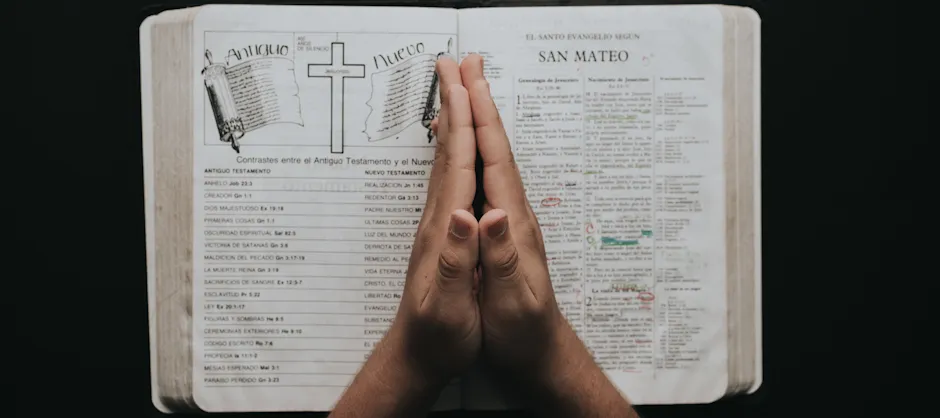
During a retreat we usually direct our attention to Scripture. The passages may be of our own choosing or may be given to us. From one perspective a retreat of silence and solitude can be seen as a way of quieting and focusing us in a greater way in order to listen to God, primarily through Scripture. You can decide how to use the time available in solitude and silence, and when to give your attention to a Biblical text (although sometimes the Holy Spirit may bring one to mind unexpectedly, and we will want to give it our attention.) We do suggest some rhythm and balance in these times between Scripture meditation, prayer, reflection, journaling, and resting. We want a retreat to be restorative and refreshing, not exhausting!
In coming to the Scripture our aim is to allow Jesus to speak to us through the Scriptures, as he did with the two with whom he walked to Emmaus, whose hearts burned as he spoke with them. This approach to Scripture is more meditative and leads to prayer.
As Richard Foster says,
Whereas the study of Scripture centers on exegesis, the meditation of Scripture centers on internalizing and personalizing the passage. The written Word becomes a living word addressed to you… Just as you do not analyze the words of someone you love, but accept them as they are said to you, accept the Word of Scripture and ponder it in your heart, as Mary did. That is all. That is meditation. What happens in meditation is that we create the emotional and spiritual space which allows Christ to construct an inner sanctuary in the heart… Christian meditation leads us to the inner wholeness necessary to give ourselves to God freely.” (Celebration of Discipline, p. 20,21,29)
Here is a suggested way of reading the passage meditatively and prayerfully:
- Read the passage twice (preferably aloud), slowly and thoughtfully, aware that you are in the very presence of the Shepherd. Each time, note what strikes your attention or seems to address you or invites you to look more deeply.
- After the second reading, return to what you noted, ponder this more, sit with it, explore your life and situation in its light, and then let it lead you to prayer.
- Continue in prayer, in silence or with words, letting what the Lord is saying to you sink more deeply into you.
- Before leaving this time, write a word of worship, thanks or response to the Lord.
The important thing on a retreat is not how much we read or what information or insights we add to our store of Biblical knowledge. Rather, what is important here is what is able to enter through our minds and descend into our hearts. Depth rather than quantity is what is sought; meeting with God rather than only learning about him. As James exhorts us, humbly accept the word planted in you, which can save you. (James 1:21) We want the Word to sink deeper roots in us so that it might save and renew us, cleanse and free us, uplift and empower us.
Study-Meditation-Spiritual Readings
Study: “We take an objective order into our minds, that can shape us and put us into appropriate correlation with reality.” (Scripture, God’s Works, Ourselves, Our World) We aim to shape our minds and inflame and renew our hearts (Willard).
Meditation: “In study... we not only read and hear and inquire, but we meditate on what comes before us; that is, we withdraw into silence where we prayerfully and steadily focus upon it. In this way its meaning for us can emerge and form us as God works in the depths of our heart, mind and soul. We devote long periods of time to this. Our prayer as we study meditatively is always that God would meet with us and speak specifically to us, for ultimately the Word of God is God speaking.” (Dallas Willard, Spirit of the Disciplines, p. 177)
Spiritual reading (lectio divina) “is the discipline of openness to encounter God through the writings of the mothers and fathers of the church, beginning with the Scriptures. In spiritual reading the text becomes a means of grace through which we encounter the God who has spoken us forth into being and who continues to speak to us to shape us in the image of Christ for others. In brief, the text opens us to God’s control of our lives for God’s purposes. This is a radical reversal of the dynamics of an informational culture in which our possession and use of information enables us to impose our purpose upon the world of our activities... This facilitates one of the primary purposes of spiritual reading—to allow the text to have control over us and become a place of encounter with God.” (Robert Mulholland, Invitation to a Journey, pp. 110,111)
